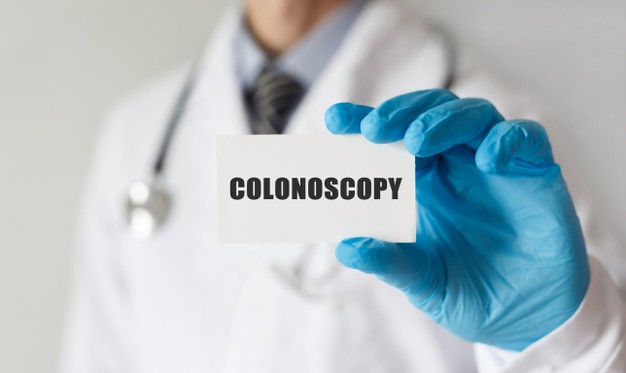The colonoscopy procedure colon screening isn’t a very long process, but yes, it may take time from getting an appointment to getting it done; on the date of the appointment, you reach for the test, and you have to wait for a few minutes until the procedure lab is ready, you will be called to the room for the test but before that, you need to change all your clothes which are suitable for the test, most colonoscopies take only 20 to 30 minutes to get done, it causes no pain or discomfort while the procedure is being done.
Once the observation through colonoscopy is executed, you will be transferred to the recovery area until the sedation of the anesthesia is completely gone. You must be advanced to your caretakers in a waiting area.
Before you leave the lab, you are given a test report after the assessment, but biopsy tests are done in labs, and the reports are given in 2 weeks.
However, how long does colonoscopy take? You can refer to it from the procedure that takes approximately 2 to 3 hours. It is the whole time taken for the test.
What Is Colonoscopy
It is a test followed on the patient for the overall examination of the long intestine. It examines the rectum and anus. This test execution is done with the help of a flexible tube which is well equipped with a tiny camera and other tools that helps in completing colonoscopy test, this tube is passed through anus for clear vision of rectum, colon and anus.
It has an investigation into colorectal health. The test determines the cause of abdominal pain, rectal bleeding, chronic diarrhea, and intestinal problems while performing the test. Polyps or abnormal tissues can be removed for further testing and providing proper diagnosis.
Colonoscopy is a common process, and everyone must consult their doctor about preparation, anesthesia options, and recovery.
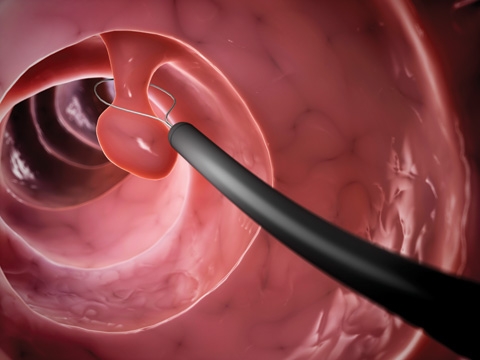
At What Age One Must Get A Colonoscopy?
As per the U.S. Preventive Services Task Force (USPSTF), the recommended age is 45 for a colonoscopy for both men and women; people who are above average risk must get tests done frequently to know exactly about their health.
Also, people who must get the test done are:
- If you have any personal or family history of colorectal cancer or polyps
- Personal history of inflammatory bowel disease (IBD) such as ulcerative colitis or Crohn’s disease
- Known or suspected genetic conditions such as familial adenomatous polyposis (FAP) or Lynch syndrome
- Radiation exposure to the abdomen or pelvic area
- Sedentary Lifestyles, such as obesity, smoking, alcohol use, physical inactivity, and diet.
How Long Does A Colonoscopy Take
A colonoscopy test is performed to determine your large intestinal health. The whole execution process takes approximately two to three hours. Usually, the test takes 30 to 60 minutes, depending on several factors, such as preparation time, the colon length, and the number of polyps or biopsies. You must visit the test center with someone close to you or your care providers so that someone can take you home once the test gets over and this process takes two to three hours of time until the recovery. Before the procedure, you will receive a sedative, either in a pill or intravenously, to help you relax during the exam.
A colonoscopy is an important test that can help detect and prevent colon cancer and other diseases but is not without risks.
What Is The Colonoscopy Procedure?
While the colonoscopy occurs, the gastroenterologist passes a long, thin, flexible wire called a colonoscope into the patient’s rectum with a camera attached to its head.
Flexible instruments and equipment are the introduction of the era we are living in. Performing a colonoscopy isn’t difficult with these instruments. A colonoscope has a tiny video camera and light attached to a flexible tube, which, when inserted for meaning, sends a video image to a monitor that helps the doctor learn about the patient’s large intestine.
The whole test is performed with proper instructions; before the procedure begins, an IV is placed in the patient’s vein so that medications for sedation can be given quickly. The patient is connected to equipment that monitors heart rate, blood pressure, and oxygen levels. The patient also receives oxygen through the nose.
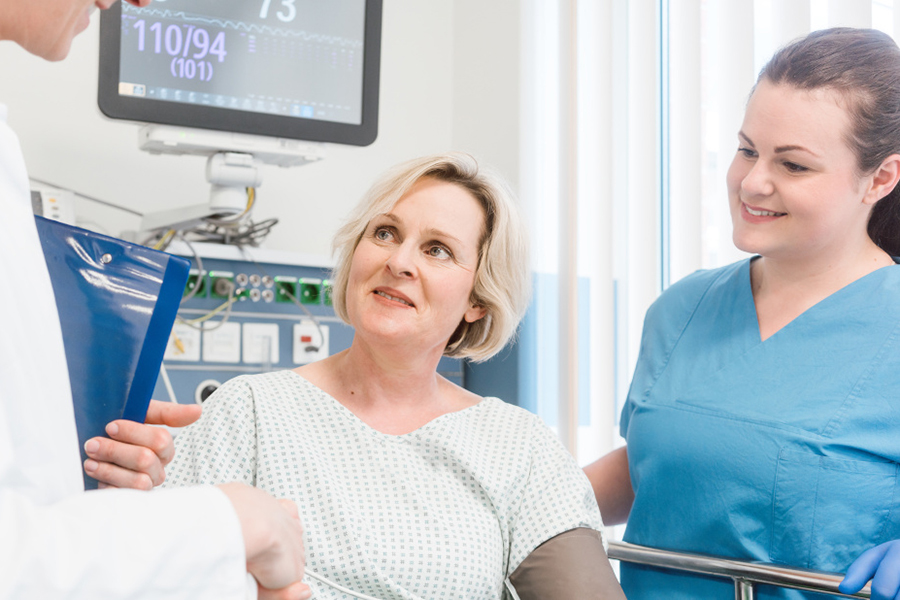
How Long Does A Colonoscopy Take?
Execution of the colonoscopy procedure generally takes 30–60 minutes, but that does not include all the time; it’s the time taken for the test. The total time for a colonoscopy is two to three hours, including the patient’s preparation and recovery at the hospital or outpatient center.
Does A Colonoscopy Hurt?
Colonoscopies in the United States are performed with sedation given to patients to make them feel nothing. Many patients fall asleep during the procedure and don’t feel anything until the entire procedure is done.
Patients who seek light sedation can feel little discomfort and some pain during the procedure.
How Can You Prepare Yourself For Colonoscopy
A colonoscopy test is performed as a medical procedure to identify the problems inside the colon rectum and large intestine. This test helps detect or prevent colon cancer and other conditions affecting your digestive system. To prepare for a colonoscopy, you need to learn about several facts mentioned below. Let’s read further to know more about it:
Doctor-specific guidelines are most important to follow when preparing yourself for a colonoscopy. You must ensure that your colon is empty and clear, as it helps get a better view of the colon.
You need to change your eating habits when undergoing a colonoscopy test. Eat low-fiber food such as white bread, pasta, rice, eggs, lean meat, chicken, fish, well-cooked vegetables without skin, and fruit without skin or seeds. Keep yourself very limited to high-fiber food products.
As per your doctor’s recommendation, the week before your colonoscopy, complete your bag that would be carried to the hospital, which contains laxatives prescribed by your doctor, low-fiber foods, clear liquids, moist wipes, and diaper cream.
Unless your doctor tells you otherwise, you must stop taking vitamins, supplements, and any medications that may interfere with your colonoscopy.
The day before your colonoscopy change your diet be on liquids or on a liquid diet, you should switch to a clear liquid diet. Such as water, sports drinks, clear juice, broth, gelatin, and ice pops. You should avoid any alcoholic beverages and soda drinks.
A night before your test you can consume the prescribed laxative that boosts colonoscopy, you should drink the first dose of the laxative prescribed by your doctor. To initiate the water bowel movements, keep wipes and diaper cream handy so that you may use them whenever required, and keep yourself hydrated to avoid any complications from dehydration.
You must consume another drink of laxative on the morning of your colonoscopy and drink clear liquids until two to four hours before the procedure; it is necessary to follow all the guidelines given by your doctor for a successful colonoscopy test.
Preparing yourself for a colonoscopy can be annoying, but it’s necessary for the proper diagnosis and treatment.
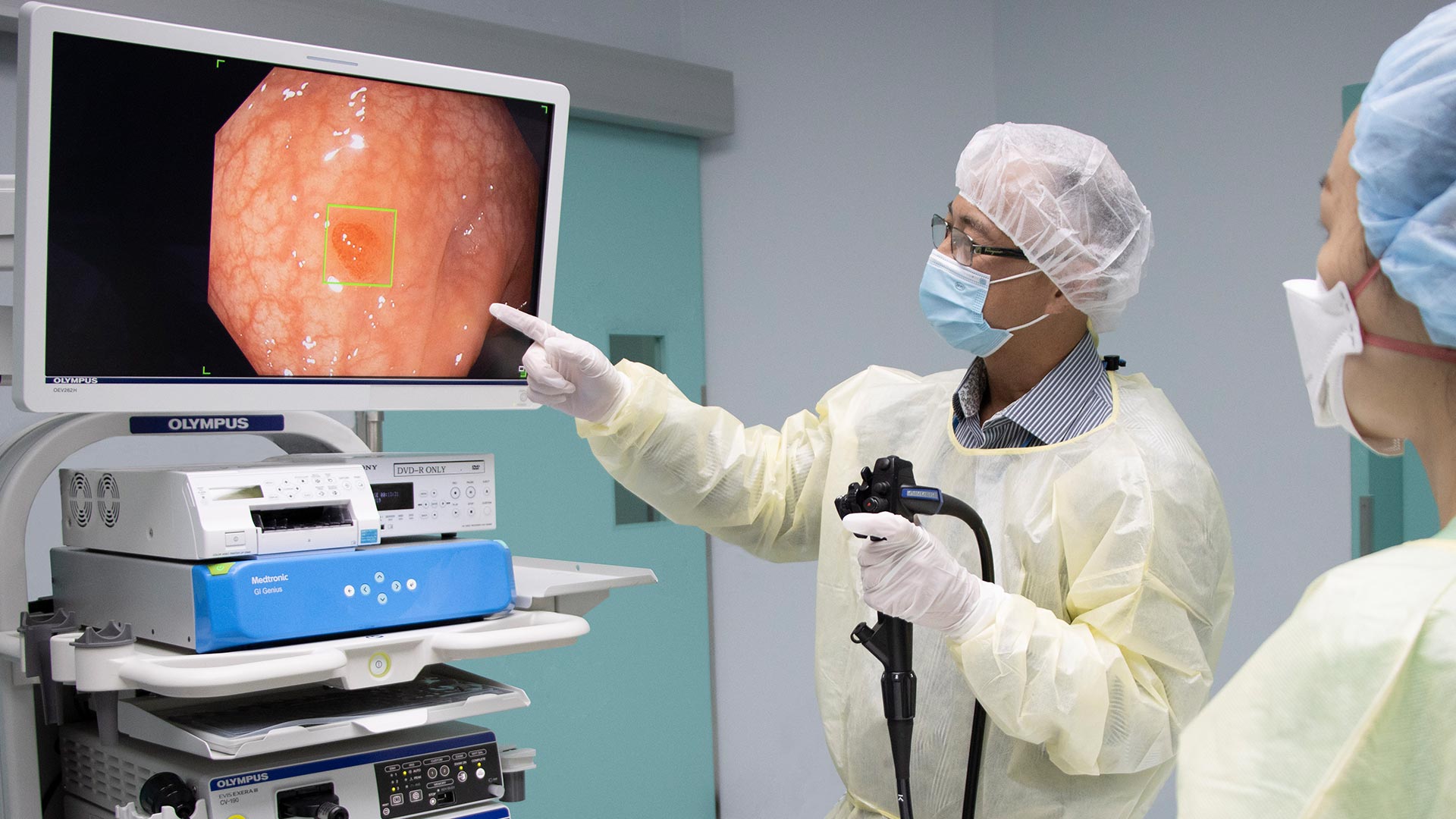
What Are Colonoscopy Risks?
There are few and low risks involved in colonoscopy. Bleeding and perforation of the colon are the most common complications and usually occur in patients who have polyps removed.
Less common risks include severe abdominal pain or a reaction to the sedative, including breathing or heart problems. Deaths from colonoscopy are very rare.
1. Bleeding
It can be a part of colposcopy, such as when a tissue sample or a polyp is taken. You may notice rectal bleeding or blood in the feces, although it’s normal or minor, but it can be serious if bleeding doesn’t drop, or it may cause a blood transfusion.
2. Perforation
It’s a rare risk that happens to a person getting a colonoscopy. The colonoscope or an instrument makes a hole in the wall of your colon or rectum, which may cause infection, bleeding, or bowel obstruction and may require surgery to repair.
3. Reaction to sedative
Sedatives can be reactive in some people, which may cause breathing problems or heart problems. Moreover, a person getting tested is monitored during the procedure to prevent complications.
4. Infection
Although the procedure is performed under strict guidelines and control, there is a rare chance of transmitting the infection, although all the instruments are disinfected and well-cleaned.
The above-mentioned risks happen rarely, but if you notice any, seek medical help immediately. Below here are listed fe more colonoscopy risk factors:
- You may experience Severe abdominal pain or bloating
- You may have a fever
- Persistent or heavy bleeding from your rectum or in your stool
- Nausea or vomiting
- Dizziness or fainting
- Signs of an allergic reaction, such as rash, hives, swelling, or difficulty breathing
You must speak to your doctor about complications, as the test is performed to determine or prevent colon cancer and other diseases.
Is Colonoscopy A Painful Procedure?
The test is performed with sedation, so you may not experience any pain inside your colon. You may not feel any pain if a tissue is being removed or laser therapy is executed inside your colon. Carbon dioxide gas is blown inside your colon to inflate it for better viewing, due to which you may experience a little gas pain or pressure. Still, it is usually noticeable once the inflation part is done. You will be in a comfortable position in the hospital bed, even if you fall asleep.
How Long Does It Take To Recover From A Colonoscopy?
After the colonoscopy procedure, the patient is shifted to the recovery room, which takes about 24 hours to recover from sedation. It is why it is recommended by healthcare to come with a care provider, as due to sedation, you won’t be able to drive, operate equipment, or make important decisions until the next day. As soon as you recover, you will find yourself more sound. You may experience some bloating or nausea, but this will pass soon. You may feel like eating, and soon, you will be on your regular diet; you may experience slight rectal bleeding for a few days if any tissue is removed.
How long does a colonoscopy take In Children
A colonoscopy can also be done on kids; it is performed to find the reasons for stomach aches, bleeding, bowels, and diarrhea. If a poly growth is noticed, it can be removed simultaneously from the bowel walls with the help of a special tool at the end of the colonoscope.
Your doctor will provide you with complete information for the colonoscopy test. Your child needs to consume laxatives for the prep. His or her colon needs to be stool cleaned to proceed with the test. You must prepare and get off the required items that your doctor must have prescribed.
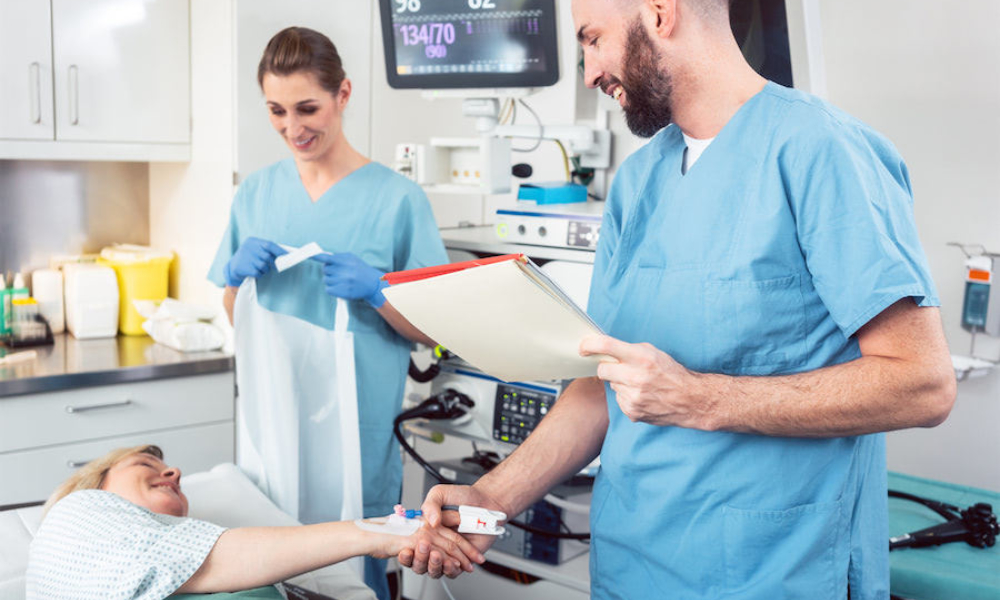
Before performing the test, your child will be given light general anesthesia to put him to sleep.
When your child falls asleep, a long, thick tube is inserted in your child’s rectum with a light and a camera on the end to get a look at the inside of the colon.
You must be wondering how long does a colonoscopy take in kids. The whole process of colonoscopy can take around 20 to 30 minutes, but it may continue depending on the doctor’s findings.
After the procedure, the child is taken to the recovery bed to join parents after waking up.
When a child is awake and can drink and eat, it is ready to get discharged, but for the rest of the day, taking good rest is recommended due to sedation. It is also necessary that the child avoid riding bikes, playing sports, or doing other things for the rest of the day that require coordination or judgment.
After getting discharged, a staff member will take him to your vehicle, or he or she can be taken in a wheelchair if the child feels unsteady on his feet and needs help performing the activity for a few hours due to the sedation.
How long does a colonoscopy take is clear from the above-mentioned reasons. It’s a life saving procedure, colonoscopy helps to detect and treat the abnormalities in your colon and rectum so that the cancer can be prevented from developing and spreading. Health is the most valuable asset that you have. Do not delay. If you undergo any symptoms, get a colonoscopy and proper diagnosis.

